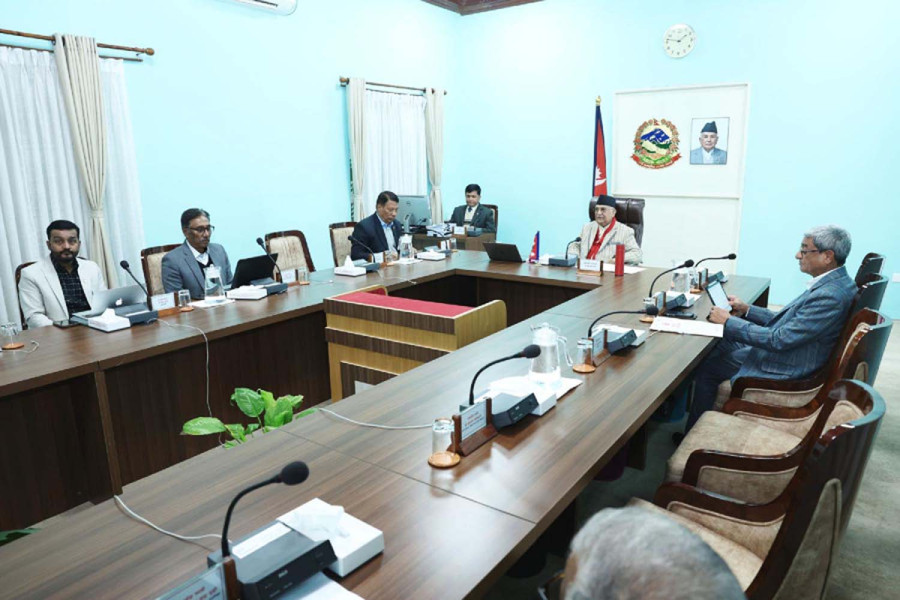Politics
Is the government amending Act to ease party splits through ordinance?
Ruling Nepali Congress, CPN-UML leaders deny it. Opposition Maoists suspect foul play.
Anil Giri
Is the ruling coalition quietly planning to amend the Political Party Act-2017 through an ordinance to facilitate splits in political parties?
The issue has been under debate in political circles in recent days, but leaders from the major ruling parties claim there is no such plan.
The Post reached out to several Nepali Congress and CPN-UML leaders to verify whether their government is working to amend the eight-year-old Act. The Act was last amended in 2021 to ease the formation of the CPN (Unified Socialist), which was born after splitting from the UML.
“No, I haven’t heard anything,” said Ajay Chaurasiya, minister for Law, Justice and Parliamentary Affairs. “But I can tell you that my ministry is not working on any such ordinance.”
Some provisions of the Political Parties Act-2017 that were nullified through an ordinance three years ago have neither been revived nor replaced, creating a legal void in the process of registering new political parties.
The Act has a provision that defines criteria under which dissidents of a political party can split the organisation and form a new outfit with the backing of a certain number of central committee members and lawmakers of the mother party.
In August 2021, the then Sher Bahadur Deuba-led government issued an ordinance lowering the threshold for party splits. It allowed just 20 percent of the party’s central committee members and 20 percent lawmakers to register a new party, down from the previous requirement of 40 percent from both categories.
But the main opposition, CPN (Maoist Centre), has sounded an alarm, claiming that the government is bent on bringing the ordinance by bypassing parliament.
“The government’s intent seems dubious. We hear they are planning to bring an ordinance to ease party splits. If true, that would be a big mistake. Bypassing parliament undermines the very spirit of democracy,” said Agni Prasad Sapkota, spokesperson of the Maoist Centre on Friday.
“We will put pressure on the government to summon the House soon,” Sapkota said, adding that prolonged absence of a parliament session is unacceptable to his party.
Earlier, in October, the Oli government was working on a similar plan, but it backtracked after opposition from coalition partner Nepali Congress.
“Deuba scuttled an earlier plan,” said UML’s Deputy General Secretary Pradeep Gyawali. “But this time I haven’t heard about any such plan.”
According to ruling party leaders, some smaller political parties that are grappling with internal disputes and factionalism, have been asking Oli and Deuba to bring an ordinance so that they can form new parties.
“A few big and small parties are internally divided, so they want freedom to form new parties or merge with others. That’s why there are rumours, but nothing has been finalised yet,” a leader told the Post, requesting anonymity.
On Friday, there was an informal meeting of the Congress office bearers but the issue did not surface in the meeting.
“I have neither heard such rumors nor seen any such plan,” said Shyam Ghimire, chief whip of the Congress. “If a new law is needed, it should be passed through parliament.”
Some Congress and UML leaders, however, claimed that the government might summon a new House session soon, and hence rumors on the ordinance are not true.
“It seems the new House session will convene within 10 days,” Ram Hari Khatiwada, chairman of the State Affairs Committee of the House of Representatives, said. “If the government tries to bypass parliament, I will bring the matter to the committee and compel the government to jettison the ordinance. Such a decision goes against democratic principles.”




 13.12°C Kathmandu
13.12°C Kathmandu














